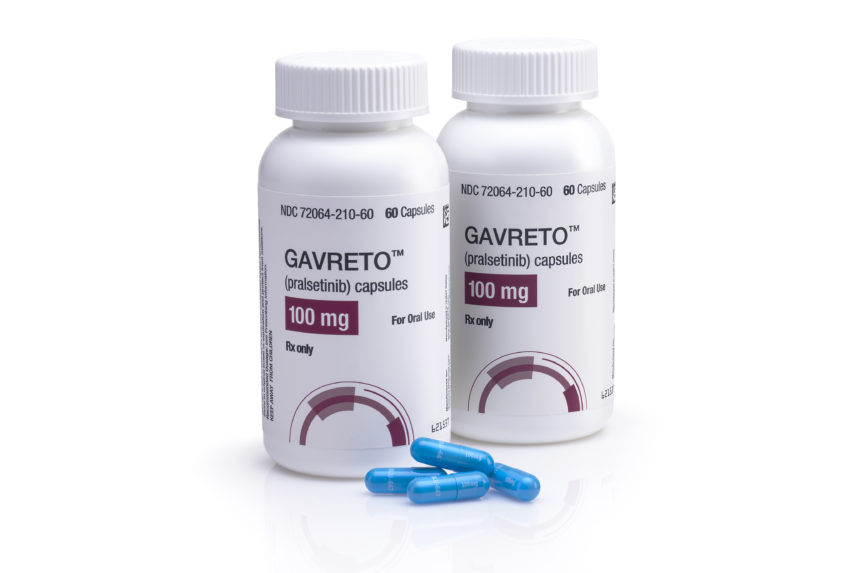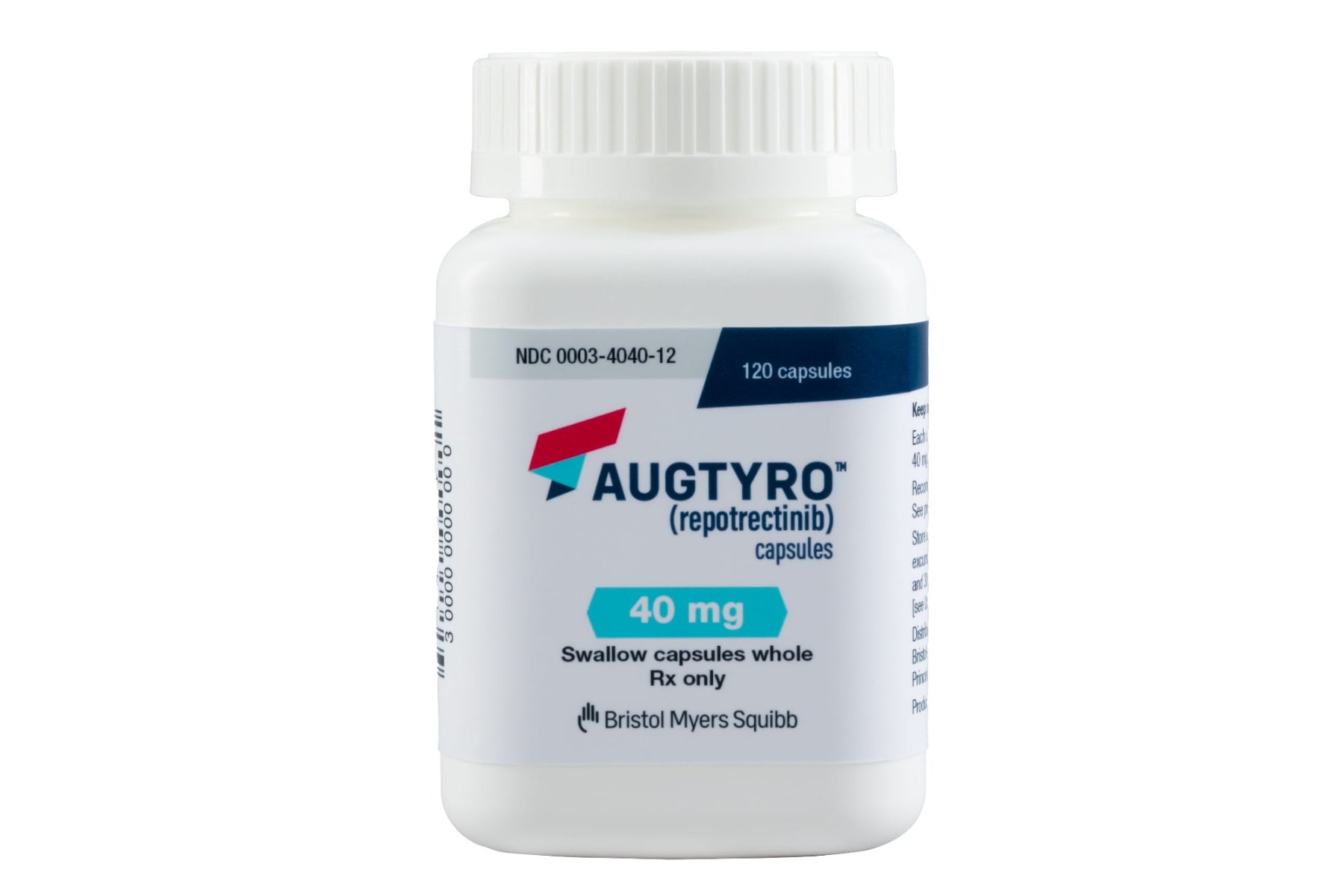Gavreto (pralsetinib) vs Augtyro (repotrectinib)
Gavreto (pralsetinib) vs Augtyro (repotrectinib)
Gavreto (pralsetinib) and Ayvakit (avapritinib) are both targeted therapies for cancer, but they are used to treat different genetic mutations and types of cancer. Gavreto is a selective RET inhibitor approved for the treatment of non-small cell lung cancer (NSCLC) with RET gene fusions and advanced or metastatic medullary thyroid cancer (MTC) with RET mutations. Ayvakit, on the other hand, is a selective inhibitor of KIT and PDGFRA mutations and is approved for the treatment of adults with unresectable or metastatic gastrointestinal stromal tumors (GIST) harboring a PDGFRA exon 18 mutation, including PDGFRA D842V mutations. For a patient deciding on which medication is appropriate, it is crucial to undergo genetic testing to identify specific mutations driving their cancer, as Gavreto is chosen for RET mutations while Ayvakit is selected for certain PDGFRA mutations. Consulting with an oncologist who can interpret the results of genetic testing and understand the patient's overall health condition is essential to making an informed decision on the appropriate treatment option.
Difference between Gavreto and Augtyro
| Metric | Gavreto (pralsetinib) | Augtyro (repotrectinib) |
|---|---|---|
| Generic name | pralsetinib | repotrectinib |
| Indications | RET-altered thyroid cancers, non-small cell lung cancer | Advanced solid tumors with NTRK or ROS1 gene fusions |
| Mechanism of action | RET kinase inhibitor | TRK, ROS1, and ALK kinase inhibitor |
| Brand names | Gavreto | Augtyro |
| Administrative route | Oral | Oral |
| Side effects | Fatigue, constipation, musculoskeletal pain, hypertension | Dizziness, fatigue, nausea, constipation, dysgeusia |
| Contraindications | Hypersensitivity to pralsetinib | Hypersensitivity to repotrectinib |
| Drug class | Kinase inhibitor | Kinase inhibitor |
| Manufacturer | Genentech, Inc. | Turning Point Therapeutics, Inc. |
Efficacy
Gavreto (pralsetinib) Efficacy in Lung Cancer
Gavreto (pralsetinib) is a targeted therapy approved for the treatment of adults with metastatic non-small cell lung cancer (NSCLC) with RET gene fusions. RET gene fusions are a rare driver in lung cancer, present in approximately 1-2% of NSCLC patients. Gavreto works by selectively targeting and inhibiting RET-driven signaling pathways which are critical for the survival and proliferation of tumor cells. Clinical trials have demonstrated significant efficacy of Gavreto in patients with RET fusion-positive NSCLC, with high response rates and durable responses observed in this patient population.
In pivotal clinical trials, Gavreto has shown a high objective response rate (ORR) in patients with RET fusion-positive metastatic NSCLC. The responses to Gavreto were also found to be durable, which is an important consideration in the treatment of metastatic cancer. Moreover, Gavreto has been effective in patients who are both treatment-naïve and those who have received prior therapy, indicating its potential as a first-line treatment option as well as for patients with disease progression after chemotherapy or other targeted therapies.
Augtyro (repotrectinib) Efficacy in Lung Cancer
Augtyro (repotrectinib) is an investigational, next-generation tyrosine kinase inhibitor designed to target ROS1 and TRK A/B/C in cancers, including NSCLC. While not yet approved by regulatory agencies, repotrectinib has shown promise in early clinical trials for treating ROS1-positive lung cancer. ROS1 fusions, similar to RET fusions, are implicated in a small percentage of NSCLC cases and are associated with a distinct clinical and pathological profile. Repotrectinib aims to address resistance mechanisms that limit the efficacy of current ROS1 inhibitors and has the potential to provide a new treatment option for patients with this type of lung cancer.
Early clinical data suggest that repotrectinib may have substantial antitumor activity in patients with ROS1-positive NSCLC, including those who have developed resistance to prior ROS1 inhibitors. The drug has been designed to have increased potency against ROS1 fusion proteins and to better penetrate the central nervous system, which is particularly relevant as brain metastases are common in ROS1-positive NSCLC patients. These findings suggest that Augtyro could offer a new line of therapy for patients with advanced or metastatic ROS1-positive NSCLC who have few effective treatment options after developing resistance to current therapies.
Regulatory Agency Approvals
Gavreto
-
European Medical Agency (EMA), European Union

-
Food and Drug Administration (FDA), USA

Augtyro
-
Food and Drug Administration (FDA), USA

Access Gavreto or Augtyro today
If Gavreto or Augtyro are not approved or available in your country (e.g. due to supply issues), you can access them via Everyone.org.
How it works

Make an enquiry
Choose the medicine you want to buy, answer a couple of questions, and upload your prescription to speed things up. We’ll get back to you within 24 hours.


Make an enquiry
Choose the medicine you want to buy, answer a couple of questions, and upload your prescription to speed things up. We’ll get back to you within 24 hours.


Breeze through the paperwork
We'll guide you through the required documents for importing unapproved medicine, ensuring you have all the necessary information.


Get a personalized quote
We’ll prepare a quote for you, including medicine costs and any shipping, administrative, or import fees that may apply.


Receive your medicine
Accept the quote and we’ll handle the rest - sourcing and safely delivering your medicine.

Some text on this page has been automatically generated. Speak to your physician before you start a new treatment or medication.
Let's talk
If you have any questions, call us or send us a message through WhatsApp or email:
Contact us




